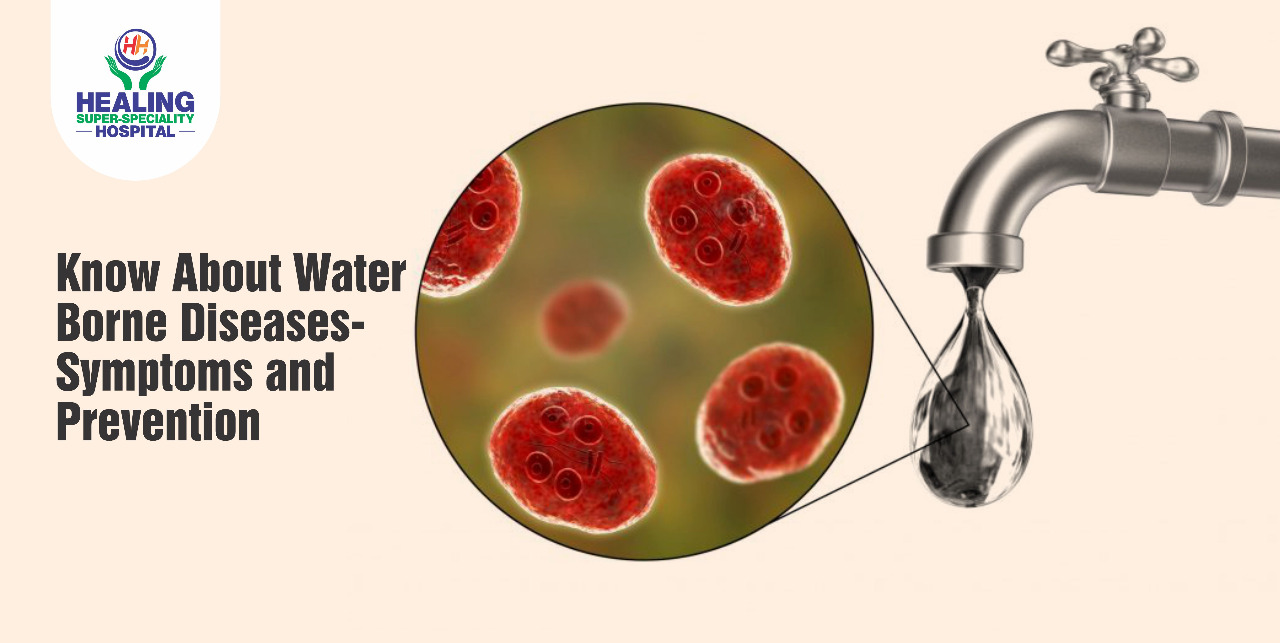Water borne diseases are common in developing countries where access to clean water and hygienic living conditions is not a reality yet. In simple terms, water borne diseases are caused by microorganisms such as viruses and bacteria that enter the body through contaminated water or through contact with feces.
Below is a list of prevalent water borne diseases and the steps that can be taken to prevent them.

1. Typhoid:
It spreads through contaminated water, food and improper sanitation. Typhoid is highly contagious and needs to be treated as soon as possible. The symptoms of typhoid fever include:
- Pain in the muscles
- Fever that increases gradually
- Diarrhea or constipation
- Extreme fatigue and sweating
Prevention:
- When visiting a place with poor sanitation, avoid drinking water that is not bottled or sealed.
- Do not eat food from street food vendors as they do not maintain proper hygiene practices.
- If you are at the risk of contracting typhoid, get in touch with your healthcare provider for typhoid vaccination.

2. Dysentery:
It spreads mainly through improper hygiene. Unhygienic food and water contain bacteria, parasites and viruses that are the reason behind the occurrence of dysentery. The symptoms of dysentery include:
- Pain and cramping in the stomach
- Nausea and vomiting
- Dehydration
- Fever
Prevention:
- Wash your hands thoroughly with soap and water at frequent intervals.
- Don’t eat food from street vendors, especially fruit that has been pre-cut for a long period of time.
- Drink bottled and sealed water only.
3. Cholera:
Contaminated water is the main source of cholera and this disease can prove to be fatal within hours of getting exposed to the bacteria. The symptoms of cholera include:
- Diarrhea
- Nausea and vomiting
- Cramping in muscles
Prevention:
- Wash your hands frequently with soap and water.
- Don’t eat uncooked or partially cooked food items.
- Drink bottled water and eat fruits that are peeled by you.
4. E.coli:
The E.coli bacteria has multiple strains some of which are useful, while others are life-threatening. The bacteria can spread through animal waste in farms where produce is grown for human consumption. The symptoms of E.coli include:
- Fever
- Nausea and vomiting
- Dehydration
- Stomach cramps
Prevention:
- Avoid drinking water from sources that might have been contaminated.
- Wash all your fruits and vegetables properly.
- Clean your hands with a good anti-bacterial soap and water frequently.
5. Giardia:
This infection is mainly caused by a parasite and can spread through contaminated water. Giardia can cause intestinal problems that can last for many years once a person has been exposed to the parasite. The symptoms of Giardia include:
- Pain and cramps in the stomach
- Nausea
- Diarrhea
- Bloating
- Weight loss
Prevention:
- Wash your hands regularly with soap and clean water.
- Don’t gulp water while you are swimming.
- Drink only bottled water.
FOR MORE INFORMATION AND APPOINTMENT CALL:
+0172-5088883, +91 9464343434
























